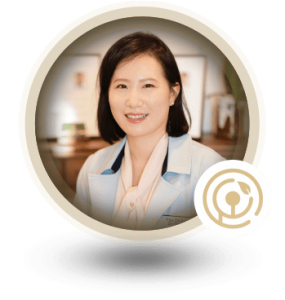Insomnia is a common sleep disorder that affects many people worldwide. It can be caused by a variety of factors, including stress, anxiety, and hormonal imbalances. Traditional Chinese Medicine (TCM) offers a holistic approach to treating insomnia by addressing the underlying imbalances in the body that contribute to the condition. In this blog post, we’ll take a closer look at how TCM can help with insomnia.
TCM considers insomnia to be caused by an imbalance of energy in the body, specifically the imbalance of the heart and liver meridians. The heart meridian is responsible for sleep and the emotional state, while the liver meridian is responsible for the smooth flow of energy in the body. When these meridians are out of balance, it can cause the body to be unable to relax and fall asleep.
Here are some of the TCM modalities that can be used to treat insomnia:
-
Acupuncture
Acupuncture is a key modality in TCM that involves inserting fine needles into specific points on the body to stimulate the flow of energy and promote healing. For insomnia, acupuncture can be used to stimulate the heart and liver meridians, which can help to calm the mind, reduce stress and anxiety, and improve sleep quality.
-
Chinese Herbal Medicine
Chinese herbal medicine is another key modality in TCM that uses natural herbs to treat a wide range of health conditions, including insomnia. Herbal formulas are tailored to each individual’s specific symptoms and underlying imbalances. For insomnia, herbs such as Valerian Root, Passionflower, and Jujube Seed can be used to calm the mind, promote relaxation, and improve sleep quality.
-
Qigong
Qigong is a mind-body practice that involves breathing techniques, gentle movements, and meditation. For insomnia, qigong can be used to calm the mind, reduce stress and anxiety, and improve sleep quality. Regular practice of qigong can also help to balance the heart and liver meridians, which can contribute to better sleep.
-
Dietary Therapy
Dietary therapy is an important aspect of TCM that involves eating foods that are appropriate for your individual constitution and health condition. For insomnia, it’s important to avoid foods that can exacerbate stress and anxiety, such as caffeine and sugar. Instead, focus on eating foods that can promote relaxation and sleep, such as warm milk, chamomile tea, and turkey.
-
Lifestyle Changes
Lifestyle changes can also play a role in improving sleep quality. In TCM, it’s important to establish a regular sleep schedule and to create a relaxing bedtime routine. This can include activities such as taking a warm bath, reading a book, or practicing meditation. It’s also important to avoid overstimulation before bed, such as using electronic devices or engaging in stressful activities.
In conclusion, TCM offers a holistic approach to treating insomnia by addressing the underlying imbalances in the body that contribute to the condition. Acupuncture, Chinese herbal medicine, qigong, dietary therapy, and lifestyle changes can all be used to calm the mind, reduce stress and anxiety, and improve sleep quality. If you suffer from insomnia, it’s always a good idea to consult with a licensed TCM practitioner to develop a personalised treatment plan.






